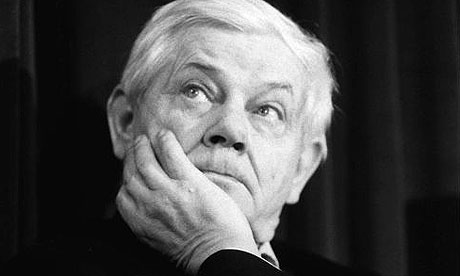
In Don DeLillo's novel Cosmopolis, a 28-year-old fund manager contemplates his financial ruin. And the poem that keeps running through his head is Report From a Besieged City by Zbigniew Herbert. It is part chronicle - "Monday: stores are empty a rat is now the unit of currency." - and part hymn to desolation: "We govern ruins of temples ghosts of gardens and houses / if we lose our ruins we will be left with nothing." Herbert, who died 10 years ago, is currently enjoying a resurgence of interest, with his native Poland dedicating 2008 to the poet and a new edition of his collected verse about to be published. Looking for the contemporary in art is like prospecting for gold on the moon; it is not why one goes there. Even so, as old certainties are destroyed and recession (or worse) tightens its grip, it is hard not to think of Herbert and his depictions of people trying to keep order amid chaos. The poet's own life was a bit like that. When he was a teenager, his hometown was invaded by the Nazis, he endured Stalinism, and in the early era of Solidarity rule he moved back to Poland. Yet his own work was only glancingly political, focusing on those living in history's chinks. Of a love-struck couple in wartime he wrote: "When it got very bad / they leapt into each other's eyes / and shut them firmly". As a poet, he refused the easy consolation of big ideas, preferring to focus on the choices individuals made. Writing, he said, "must teach men soberness: to be awake". Herbert certainly stuck to his part of the deal.

